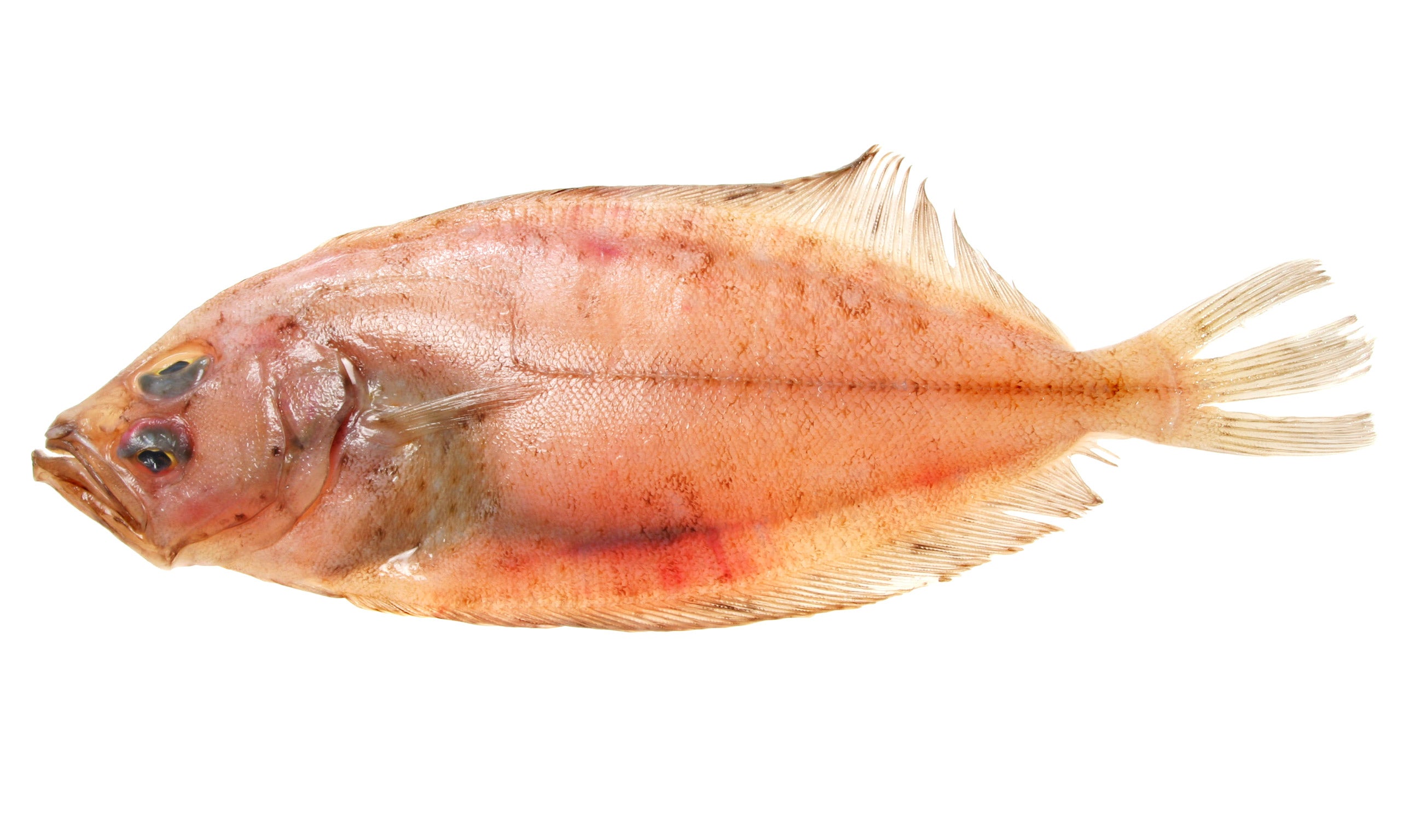Cornish megrim sole - a fish that only a mother could love?
It may be no oil painting, but Cornish megrim sole is cheap, tasty, very sustainable – and coming to a supermarket near you, says Josh Barrie

If you’ve heard of megrim sole, you’re already one-up on a lot of people. It’s hardly a popular fish. Its cousins, meanwhile, the lemon and Dover, have been on menus across the land, piled on fish counters and featured on cookery shows for years.
Granted, the megrim is not quite as delicate, not quite as easy to work with or refined in texture. But to most palates it still holds flavour and it remains a pleasant flatfish to pan-fry in lemon butter, perhaps, or serve on the bone – my favourite way – in a rich tomato-and-caper sauce.
But megrim may be about to have its moment. Its key attractions are low price, ready availability, and – that ever-potent word when discussing food these days, indeed more so from the sea – sustainability. Megrim is abundant in Cornwall’s surrounding waters, making it cheaper than lemon and significantly more affordable than the revered Dover.
You may say cost reflects quality, but at a time when consumer buying habits often lead shoppers to walk straight past the fish counter – despite a growing understanding and knowledge of cooking in the UK – perhaps it shouldn’t be so overlooked.
And yet it so often is. Many of the big players don’t stock it. A fishmonger at Morrisons in Penzance, for example – known for its reasonable championing of local, fresh produce – said the store hadn’t sold it in the six years he’d worked there. Only Tesco and Sainsbury’s – the latter of which included megrim in its “Switch the Fish” campaign to try to push lesser-known species – have it on ice. According to Sainsbury’s, 84 per cent of customers hadn’t heard of it before the drive.
Most importantly of all, though, is that sadly, due to lack of demand, megrim sole has even been thrown back because fishermen can’t get a fair price. The majority of the fish end up in Spain, with around 95 per cent of stock exported, reports Andy Wheeler, of the Cornish Fish Producers Organisation. “It’s been as low as 50p a kilo,” he explained. “For 20kg of fish, fishermen have been getting only £10. I’m sure some of the fish have been thrown away. Dover goes for around £4 or £5 a kilo. It’s 10 times as much. Even if megrim was £2 a kilo, it’d be a sufficient but still a cheaper alternative.”
Today, the UK is eating more fish and sampling a greater variety. Yet megrim still lurks in the shadows; it’s ugly, unfashionable. Wheeler agrees it should be brought more into play, citing the positivity that it would have on the market, if nothing else.
Still, the fact remains that because of culinary fashions, usage continues to lag behind its more tenderly named relatives. So how could suppliers reverse the trend? A recurrent theme in Cornwall’s ports, renaming, or rebranding, has worked in the past.

With apparently dwindling cod stocks in recent years, the now- incredibly-popular hake is eaten all over, even by the more discerning, less adventurous seafood fans. Its ethical tag, lower price but similar flesh paved the way for it to achieve acclaim. Hake opened up the UK market, too – and where had it been going before? Spain, of course.
Before hake, it was pilchards, newly dubbed “Cornish sardines” to boost sales. The move was a success. Ten years ago, The Independent noted their resurgence, which brought them back into the likes of Waitrose and Marks & Spencer by simple, albeit savvy, marketing.
Now, there has been a half-hearted attempt at such an endeavour for megrim. “Cornish sole” is on the agenda – but it needs more of a push. I shall do my bit and henceforth refer to it as such.
Laurence Hartwell, a Newlyn fishing blogger and media lecturer at the nearby Penwith College, believes the rebranding could take off with the right ingredients. He said if the public were to see the likes of James Martin, perhaps with guest Rick Stein, cook Cornish sole on Saturday Kitchen, an influx would surely follow. Ben Tunnicliffe, a past Michelin-star holder in Penzance, agrees – though he has admitted in the past that even he has decidedly looked to other fish in the kitchen. His reasoning was business-minded, but he that accepts he’d be inclined to give it more of a chance if it were to move into the spotlight.
“It’s offered to me nearly every morning,” he admits. “It’s always on the list. As a fish, I don’t really use it; customers don’t always go for it. But it can be a good fish if cooked properly. I’d be behind it coming in.”
Indeed, with an emphasis on accessibility and potential, Cornish sole could follow hake’s suit – certainly when we’re in a foodie sphere constantly reiterating the necessity to vary buying habits, to ensure we don’t bleed our seas dry of the supermarket-omnipresent cod, tuna and haddock.
But as Tesco and Sainsbury’s have proved, Cornish sole is not steeped in absolute obscurity, and The Fish Society is one of the smaller suppliers offering it to the public. What’s more, recent figures highlight even more a of reason to give the fish greater scope to appear on dining tables.
“Megrim is a very underexposed fish. On our site, Dover soles outsell megrims 30 to one, and lemon soles outsell megrims by 15 to one. However, in the first six months of this year, recorded catches [by UK boats] of megrims exceed lemons, and are three times higher than Dovers,” the society’s Alistair Blair says.
So, despite Cornish sole being scorned by some, sustainability, price and Hugh Fearnley-Whittingstall’s ambition to deliver a more future-minded sector are on its side. Indeed, perhaps it could be the next hake? Or even monkfish – now a coveted gastronomic prize that couldn’t be given away in past years (and also a fish that’s as ugly as sin). Yes, the sole could turn the tide.
At least it’s trickling into the fray: Turl Street Kitchen in Oxford had it on the menu fairly frequently over the past month, while it appeared as a special at Jamie’s Italian in Bristol recently, too. I’ve seen other restaurants cooking it elsewhere, certainly around Cornwall.
If top fish chefs were to give it more of a presence and supermarkets were to buy it in at a fair price, the species might have a chance at bolstering the industry. With the likes of fish fingers and tinned tuna weekly staples, buying cheaper – yet delicious – fresh fish, as many have preached, should be more ingrained in us. And it is flavourful, by the way. Ask Mark Puckey, the head chef lecturer of Rick Stein’s Padstow Seafood School: “Megrim sole, perhaps not as pretty as its Dover and lemon counterparts, is nonetheless extremely tasty and very good value. It is sustainably fished and is in plentiful supply off the Cornish coast for most of the year.”
Cornish sole, like the sardines and hake before it, deserves more. Could this floudering sole be the next fish to come into its own? I do hope so.
Join our commenting forum
Join thought-provoking conversations, follow other Independent readers and see their replies
Comments
Bookmark popover
Removed from bookmarks